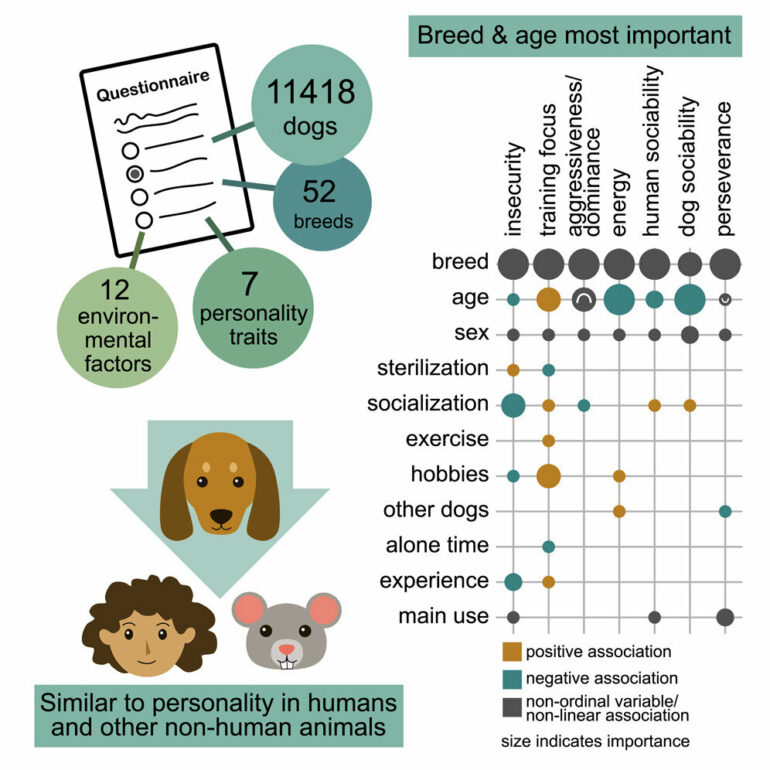The dog, man’s best friend, is a popular pet. There are hundreds of different dog breeds, each of which is said to have a personality of their own. A study recently completed at the University of Helsinki confirms this notion of personality differences between dog breeds. The research is published in the journal iScience.
“The breed of the dog is the most important determinant underlying personality differences. All dogs are individuals, and all breeds have different traits, but the breeds differ in what kind of personality most dogs within each breed have,” says Postdoctoral Researcher Milla Salonen. While carrying out this study, Salonen worked as a researcher at the Faculty of Medicine, University of Helsinki. Currently she is active at the University of Turku’s Department of Biology.
Researchers from the canine gene research group at the University of Helsinki collected an enormous behavioral survey dataset encompassing more than 11,000 dogs, investigating environmental and other factors related to personality. The dataset included more than 300 different breeds, which were grouped into 52 breed groups. Up to now, differences between breeds have not been investigated in such a comprehensive manner. In fact, many of the breeds and breed groups have never been studied before.
“This study provides a topical update on the effect of the breed on the dog’s personality, since in an American study published last year that effect was considered to be very minor. While the breed is the most important factor underlying personality, many genetic and non-genetic factors have a complex effect on personality,” points out Professor Hannes Lohi from the Faculty of Veterinary Medicine.
The study investigated the link between various factors to seven personality traits: insecurity, training focus, aggressiveness/dominance, energy, dog sociability, human sociability, and perseverance.
Puppyhood socialization is important
Of the environmental factors investigated in the study, socialization in puppyhood was the most significant. A large number of socialization experiences in puppyhood (between seven weeks and four months of age) were associated with the traits of lower insecurity and aggressiveness/dominance, as well as with higher training focus, and human and dog sociability.
“Our findings indicate that new owners should familiarize their puppies as much as possible with unfamiliar people, places and animals. Of course, socialization must always be done on the puppy’s terms, which means that the puppy must not be forced into frightening situations,” says Salonen.
Age had a strong link to dogs’ behavior. In older dogs, the mean for the training focus trait was higher than in young dogs. An opposite link was observed between age and insecurity, energy as well as human and dog sociability: in young dogs, the mean was higher.
Complex personality traits
The underlying factors investigated only accounted for a small part of the variation in personality traits between individuals. This and the substantial differences observed between breeds indicate that personality is also strongly genetic. Most likely, the environment of early puppyhood, including the care provided by the mother, is also of great importance, but this could not be determined in the study.
“Based on our research, personality traits are extremely complex and have astounding similarities between dogs, humans and other animals,” Salonen says.
More information:
Milla Salonen et al, Breed, age, and social environment are associated with personality traits in dogs, iScience (2023). DOI: 10.1016/j.isci.2023.106691
Provided by
University of Helsinki
Citation:
Breed, age and puppyhood socialization linked to canine personality (2023, May 25)



